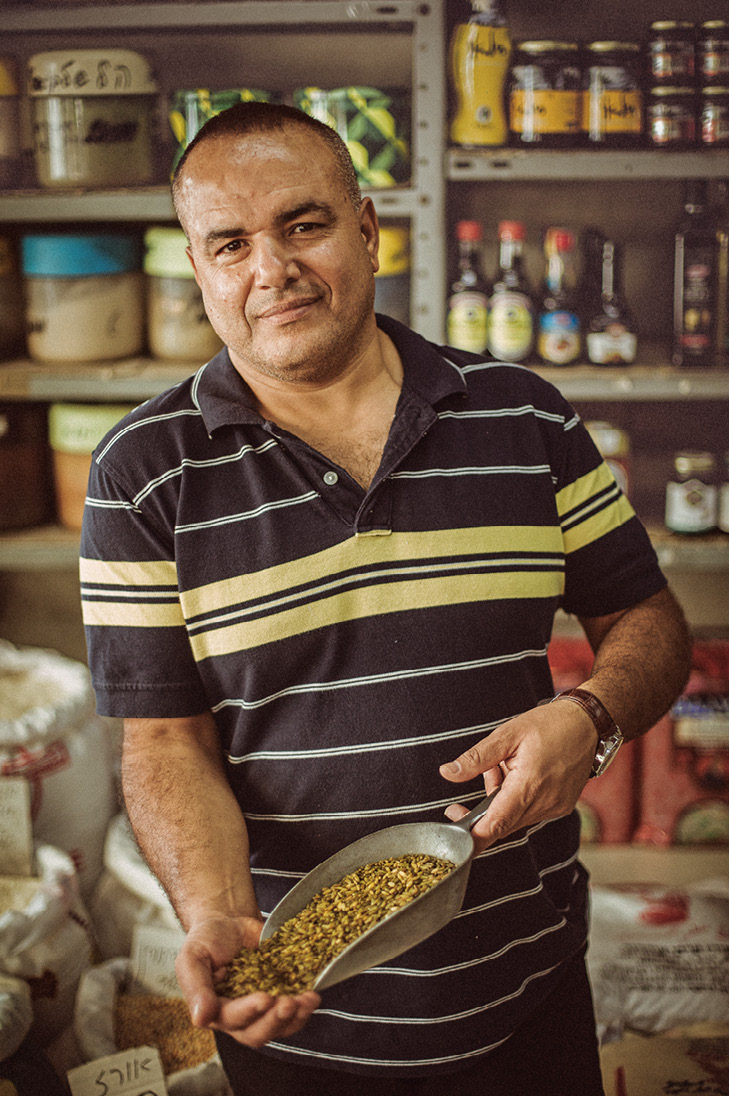Freekeh Vegetable Soup
It’s not all palm trees and hot beaches; Tel Aviv has a winter, too, bringing hard rain and strong winds that practically make you beg for a bowl of soup. Freekeh (smoked, cracked wheat; see The Freekeh Connection, this page) adds both body and flavor to this one. Though most wheat in Israel is imported, a small amount is harvested locally every spring. In Arab communities, prized young green wheat is picked and dried in the field over wood to create freekeh (pronounced “freaky” in Israel), a beguiling grain that can be used a million ways (though some of the freekeh I buy here is local, much of it is imported from Turkey). If you throw in a little extra, its starch makes the soup grow thick, so that one minute you have a normal broth and the next you’re looking at almost-porridge . . . but in the best possible way. The freekeh adds just a wisp of smoky flavor, as though a blown-out match had passed through each spoonful for a second.

Serves 6 to 8
Active Time: 15 minutes
Total Time: 55 minutes

1 cup freekeh (cracked or whole)
3 tablespoons extra-virgin olive oil, plus more for drizzling
1 large onion, diced
1 medium kohlrabi, rind and tough outer membranes peeled off, diced
2 medium carrots, diced
1 teaspoon kosher salt, plus more for seasoning
½ teaspoon freshly ground black pepper, plus more for seasoning
3 garlic cloves, minced
8 cups vegetable or chicken broth, plus more if needed
2 medium zucchini, diced
1 Parmesan rind or 1 tablespoon nutritional yeast (optional)
2 teaspoons chopped fresh za’atar or oregano
¼ teaspoon cayenne pepper, or more to taste
Chopped fresh herbs (za’atar, parsley, chives, or scallions), for garnish
Place the freekeh in a medium bowl, cover with cold water, and set aside. Heat the olive oil in a large (4- or 5-quart) saucepan over medium heat. Add the onion and cook, stirring, until softened, 8 minutes. Add the kohlrabi and carrots and cook, stirring, until the vegetables begin to soften, 5 minutes; season generously with salt and black pepper. Add the garlic and cook 1 more minute. Drain the freekeh, rinse it with cold water, and add it to the pot. Add the broth, zucchini, Parmesan rind if using, za’atar, salt, and the cayenne. Bring to a boil, then reduce the heat and simmer, uncovered, until the soup is thickened, 25 to 30 minutes (or a few minutes longer if you’re using whole freekeh instead of cracked freekeh). Remove the Parmesan rind, season with more salt and black pepper to taste, divide among bowls, garnish with herbs, and drizzle with olive oil.


The Freekeh Connection
I may not go to the supermarket much, but I do frequent a makolet, or minimarket, around the corner from both our house and the shuk. It’s where I get my packaged cookies and pasta and tubs of rich sour cream. More often than not I end up spending time talking to Khalifa Zeadat, who lives near the shuk but originally hails from East Jerusalem. With perfect Hebrew, Russian, English, and Arabic, he’s a quadruple threat, capable of communicating with more Israelis than possibly anyone else I know. And communicate he does—he’s friendly, funny, and wise, always knowing how to extend a kind word if I seem tired from shuttling my packages or to show me photos of a Russian meal he made in his apartment for friends. One day, realizing I’d walked out of the shuk without buying freekeh, I mentioned it to him. “How do you even know what that is?” he asked me, since, surprisingly, many Israelis still don’t. I explained that it was quite popular in the United States and that I loved it. He made me an offer I couldn’t refuse. “I get the best freekeh in East Jerusalem, where I’m from, the kind my mother buys,” he told me. “Want me to bring you some?” Ever since, I put in my order and Khalifa brings me the real deal: local wheat harvested and smoked in the field. It’s greener and smokier than the freekeh I can usually get and, more important, it comes courtesy of one of the friendliest guys in the vicinity of Shuk HaCarmel.